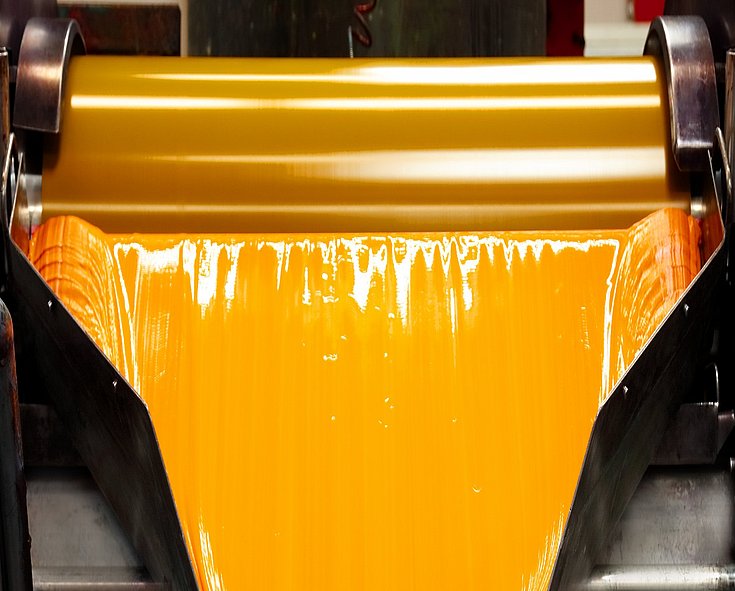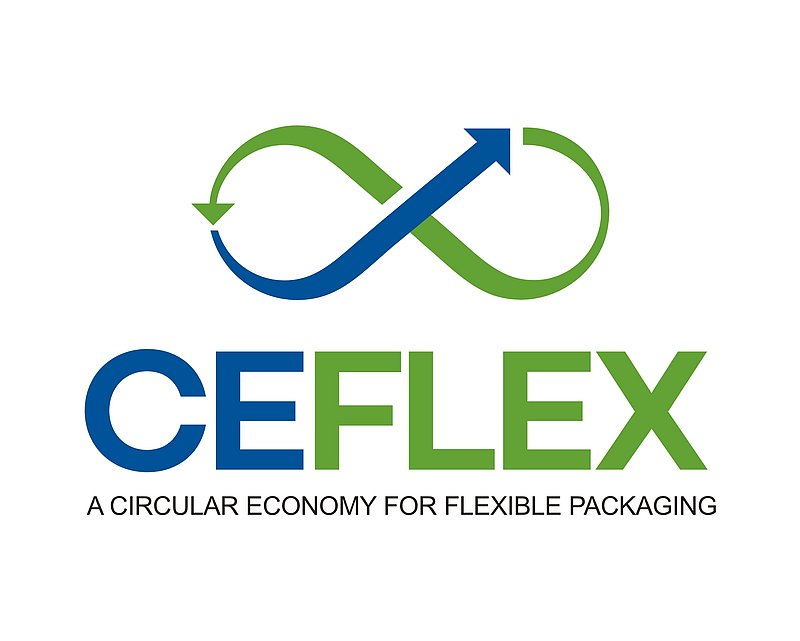
Colors are passion, emotions and personality. At Siegwerk, inks and coatings are our specialty and we use color to bring the packaging and products of our customers to life.

Siegwerk, one of the leading global providers of printing inks for packaging applications and labels, cooperates with CEFLEX, a collaborative European consortium of companies and associations representing the entire value chain of flexible packaging, to develop advanced flexible packaging solutions for a circular economy. Siegwerk is a committed member of the initiative contributing its extensive ink expertise to enhance performance and recyclability of flexible packaging to help realize the full potential for a sustainable future.
The CEFLEX initiative unites almost 100 companies and associations from the entire value chain of flexible packaging – from manufacturers of packaging films and processors (including ink providers), to brand owners, retailers and specialized companies for recycling. “CEFLEX is the most significant and solution-oriented industrial initiative for flexible packaging,” explains Jörg-Peter Langhammer, Head of Global PSR + Sustainability at Siegwerk. “It offers a perfect platform to network and exchange with experts from other areas and to cooperatively shape the future by redesign and innovation, along with the parallel development of a strong infrastructure to collect, sort and recycle flexible packaging. I am firmly convinced that together we can make a real difference.” Siegwerk has joined CEFLEX in 2017 as the first ink provider. Prior to that, the company was already contributing to preliminary projects regarding the future of flexible packaging managed by the Delft University of Technology in the Netherlands.
The CEFLEX commitment and New Plastics Economy
Flexible packaging represents an application area that provides customized product protection at minimum total cost and with the lowest environmental impact – in other words it is very resource efficient. CEFLEX and its stakeholders are fully committed to the goal of 100 percent collection and recycling of all plastic packaging. Working together, the initiative’s underlying goal is to prepare a comprehensive sustainability and circular economy roadmap for flexible packaging by 2020. Next to design guidelines for flexible packaging in a circular economy this roadmap shall include activity plans for an increased resource efficiency as well as measures for the optimized collection of flexible packaging waste and recovery of recyclables. By 2025 CEFLEX wants to establish a collection, sorting and reprocessing infrastructure based on the most cost-effective and environmentally friendly processes, concretely developed for post-consumer flexible packaging across Europe. Alongside with CEFLEX, Siegwerk fully supports the Global Commitment and Common Vision issued by the Ellen MacArthur Foundation (EMF) on a New Plastics Economy envisaging a future where plastic, including flexible plastic packaging, is never becoming waste and is in line with a circular economy.
Siegwerk’s contribution
Siegwerk’s contribution applies to printing inks and varnishes and their essential role in the future of flexible packaging. Today, the company’s experts are participating in three of the seven overall workstreams that were established to achieve CEFLEX’s defined goals. These include:
1. Design Guidelines for a Circular Economy
2. Sustainable End Markets
3. Facilitating Technologies
Through its work, Siegwerk contributes to the design guidelines for flexible packaging in a circular economy and the influence of inks and printed layers on the automatic sortability of flexible packaging waste and on recyclates derived from mechanical recycling including extrusion. Together with all other stakeholders, Siegwerk takes the discussion further and investigates the removal from inks and printed layers during the recycling process (deinking) to improve the quality of the recyclates. Ultimately, Siegwerk is engaged in investigations on ink influence within advanced recycling technologies like chemical recycling where polymers are extracted from pre-sorted post-consumer waste streams. Apart from mechanical recycling many of these advanced recycling technologies haven’t been used on a large scale yet and thus might be promising options for the future.
The company’s strong commitment within the CEFLEX network is once again demonstrating its leading role in terms of sustainability and product safety. Sustainability means progress for Siegwerk. Siegwerk has a wealth of experience with inks for paper & board applications and the corresponding need for ultimate deinkability of inks to support paper recycling. The company offers ink series that are compostable according to DIN EN 13432. Siegwerk also makes every effort to further develop bio-based inks – like the newly- developed water-based ink range UniBio – with an increased share of raw materials based on renewable resources. With its ink series Sicura Litho NutriEco Siegwerk also markets the world’s first low migration UV ink range for cosmetics and food applications that has been awarded Gold status of the “Cradle to Cradle® Material Health Certification” by the Environmental Protection Encouragement Agency (EPEA). This means, that these inks are safe for recycling processes and therefore fit well into the circular economy approach. These are just a few examples of Siegwerk’s extensive activities to further shape the future of packaging through innovative and sustainable ink solutions.
About CEFLEX
CEFLEX is the collaborative initiative of a European consortium of companies and associations representing the entire value chain of flexible packaging. The project mission is to further enhance the performance of flexible packaging in the circular economy by advancing better system design solutions via collaboration. The project stakeholders are: The Alliance for Beverage Cartons and Environment, AMB SPA, Amcor, Ampacet Corporation, Applied Materials, APK AG, Attero, Avery Dennison, Bak Ambalaj, BASF, Barilla Group, Bemis, Borealis, Robert Bosch – Packaging Technology, Bostik, Brückner Machinenbau, cfp flexible packaging, Citeo, COIM Group, Constantia Flexibles, Coveris, Dai Nippon Printing, Danone, Dow Europe, DSD, DSM, DuPont, DuPont Teijin Film, EcoBlue, ecolean, Erema Group, EXPRA, Ferrero, FFP Packaging Solutions, Fiberight, Flexible Packaging Europe, Gerosa Group, Gualapack Group, Haribo, H.B. Fuller, Henkel, Hill’s Pet Nutrition, HIPP, Huhtamaki, Hydro Aluminium Rolled Products, Immer Group, Ineos, Innovia Films, JAKOBS DOUWE EGBERTS, Jindal Films Europe, KIDV, Krehalon, Kuraray EVAL Europe, M&S, Mondi Consumer Packaging, Mitsui & Co., Mitsui Chemicals Group, Morchem, mtm plastics (A Member Of Borealis Group), Nestlé, Nippon Gohsei Europe, The Procter and Gamble Company, Pellenc, PepsiCo, pladis, PlasticsEurope, Plastotecnica, Porta, Polifilm, Polypouch, Polysack, Pyral, Reifenhäuser, RPC bpi group, RKW Group, Roberts Mart & Co, Royal Canin, SAES Coating Films, SAICA, Sappi Packaging and Specialty Papers, Scholle IPN, Schur Flexibles, Sealed Air, Siegwerk, Sit Group, Smurfit Kappa, Südpack, Suez, Taghleef Industries, Tomra Sorting, Tönsmeier Wertstoffe, Toppan Europe, Toray Films Europe, Total, Toyo Ink SC Holdings, UBE Europe, Unilever, WINDMÖLLER & HÖLSCHER, Wipak, WRAP. For more information please visit ceflex.eu